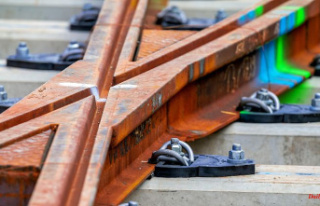Cuba and Russia have had close ties for decades. A visit by President Díaz-Canel to Moscow shows that the war in Ukraine hasn't changed anything. There he unveils a Fidel Castro statue with Putin. Which prompts the Russian President to make bizarre statements.
While Russia's relations with many major economies are on hold because of the Ukraine war, the socialist Caribbean state of Cuba is receiving a special honor in Moscow. Kremlin chief Vladimir Putin unveiled a three meter high bronze monument to the Cuban revolutionary leader Fidel Castro in the presence of Cuban President Miguel Díaz-Canel. Incidentally, there are no Castro statues in Cuba itself - the revolutionary leader, who died in 2016, had wished for this in order to avoid a posthumous personality cult.
Castro was "one of the brightest and most charismatic leaders of the stormy and dramatic 20th century," Putin said, according to the Interfax agency. "A truly legendary personality".
In their last conversation in 2014, Castro emphasized that every people has the "right to free development and to choose their own path" and that "in a truly just world there is no place for coercion, robbery and neo-colonialism," said Putin visited the island that year.
That's exactly what international observers are currently accusing Russia of for its attack on Ukraine - which is why the statements seemed bizarre. The war against the neighboring country has been raging for almost nine months. Putin denied Ukraine's historical independence. For the heavily indebted Caribbean island of Cuba, Russia is one of the closest allies and most important donors. The Kremlin described Cuba, which has not condemned Russia's war in Ukraine, as a "very important partner".
The connections between the two countries go back decades. After the Cuban Revolution led by Fidel Castro in 1959, the then Soviet Union began to support the Caribbean state. During the Cuban Missile Crisis in 1962, this led to the most violent tensions with the USA because Moscow had stationed medium-range missiles on the island that could reach the American mainland - the Third World War was threatening.
Aid from the Soviet Union only ended after reunification and the collapse of the communist superpower in 1991. Putin revived old contacts soon after taking power and visited Cuba in 2000. After Castro's death, his brother Raúl Castro took over the leadership of the country until Díaz-Canel became president in 2019.












